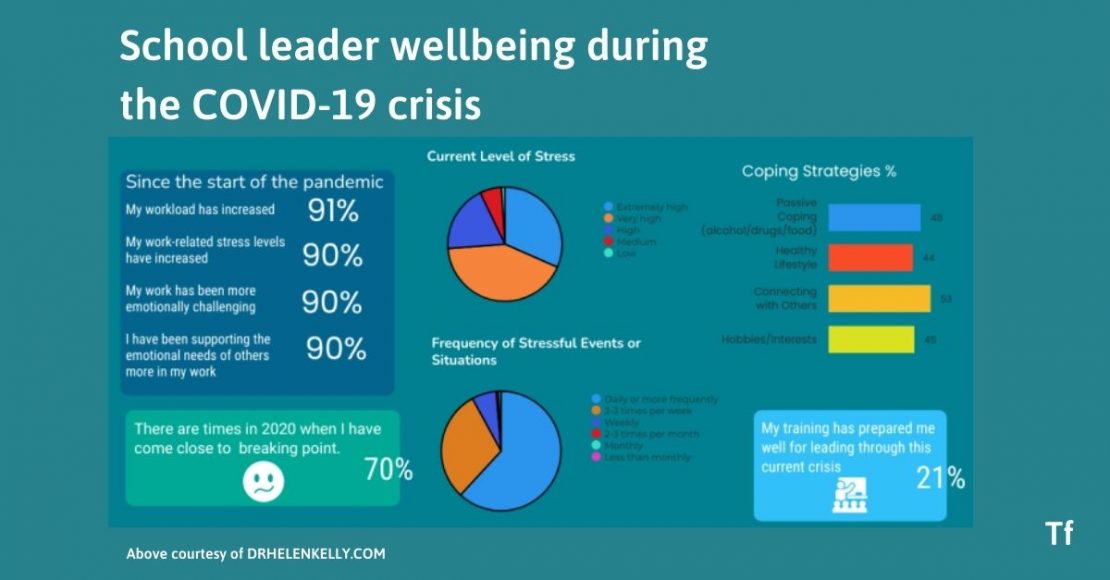How COVID has changed work routine of a Deputy Headteacher
How many times have you said, heard and read the word ‘pandemic’ today? How about this week? 2020 has brought some pressures that schools didn’t expect and also worsened the ones we have had for decades – tight budgets, school inspections, and frequently changing government guidelines to name a few. On the other hand, many see this as a catalyst for change, from new best practices for online schooling to overall efficiency.
While there are plenty of updates from authorities, not many magazines discuss what a socially distanced day of work looks like for a Deputy Headteacher. In this conversation with Liz Foreman, a Deputy Head from Liverpool, we wanted to stay away from unnecessary drama (which we all have enough of!) and simply get a feeling of her new daily routine.
1. What does a normal school day look like since the pandemic has started?
My day has changed very much! For classes that are not isolating, we begin earlier and end the day later to accommodate a staggered start and finish time to the day. Children have to wash their hands 6 times a day which cuts into teaching time quite considerably. As a result of maintaining class bubbles, there is no opportunity to visit other classes and for teachers to teach across year groups.
Lunch and break times are also staggered which means that more staff are called to do supervision duties. Weekly ‘catch up’ classes are held to fill gaps left from children being away from school during lockdown. Assemblies take place via Zoom, as do parents’ evenings. The staffroom is now ‘out of bounds’ which means that staff are isolated throughout the day. If individual children are isolating within a class, the teacher must provide both in-class and online teaching.
2. What does this mean for a school leader?
As a senior leader, a whole new batch of policies had to be written to cover the changing landscape. When classes are isolating we deal with all parent queries, comments and suggestions. Welfare calls need to be made weekly to all isolating children. CPD and meetings with other agencies are now online. A big focus is now given to staff wellbeing noting the additional strains put on staff.
3. As a Deputy Headteacher, do you feel that staff need more support than prior to the pandemic?
Teaching is a collaborative job. The staffroom often acts as a space where staff can go to share concerns, seek advice, let off steam or take time out from the pressures of the school day. In the absence of a space where staff can congregate, they have become isolated and this has had a big impact on staff wellbeing. In order to maintain strict bubbles, it is not unheard of for teachers to go through an entire school day without speaking to another adult!
As a deputy head, there is a need to support the headteacher as well as the rest of the staff. There are so many pressures put on staff in so many areas that this is a challenging task. Often, senior leaders themselves take on too much in an effort to support others and avoid asking them to increase their workload further. In turn, this inevitably compounds wellbeing issues.
4. Could you name three things that would’ve best supported you and your fellow senior leaders right now?
- More non-contact time in order to stay on top of the increased workload.
- Clearer and more timely guidance from the government (last minute vague guidance has served to increase pressure on schools!)
- A way of allowing staff to maintain social relationships in school (I’m not yet sure how this could happen though)
The pandemic has been challenging and demotivating, but I believe it can be a catalyst for change. With teacher retention at a worrying low across the country, never has it been more important to challenge existing systems. Perhaps the current situation in which we find ourselves has given us the push to take the leap into the unknown. What do we have to lose?
____________
What else would you ask a Deputy Headteacher? Get in touch with us on social media (Facebook or LinkedIn) and we will pass your questions to Liz.






